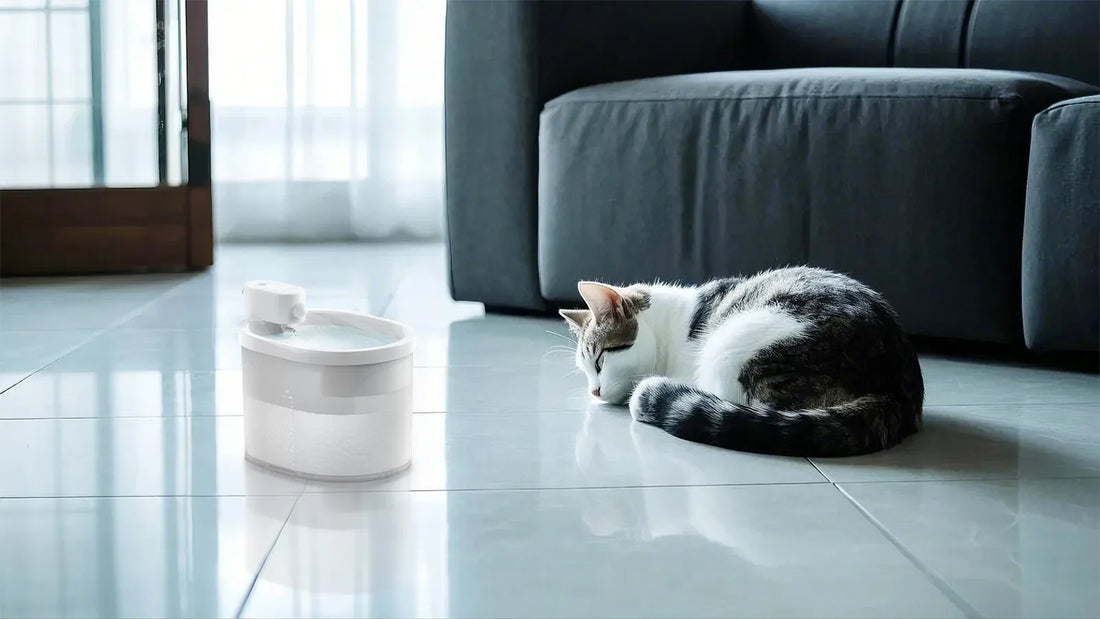If you've ever walked into your kitchen only to find an unpleasant surprise in your cat's food bowl, you're not alone. Many cat owners have faced the baffling and frustrating situation of their feline friend pooping in the food bowl. This behavior can be perplexing, but understanding the underlying causes is the first step toward resolving it. In this article, we'll explore the possible reasons why your cat might be exhibiting this behavior and provide practical solutions to help you and your pet live in harmony.
Understanding Your Cat's Behavior
Cats are creatures of habit, and their behaviors are often driven by instinct, health issues, or environmental factors. When a cat starts pooping in the food bowl, it's essential to consider all possible causes. Here are some of the most common reasons:
1. Litter Box Issues
One of the most common reasons for this behavior is related to the litter box. Cats are very particular about their bathroom habits, and if something is amiss with their litter box, they may seek out alternative locations. Issues such as a dirty litter box, an unsuitable type of litter, or a box that's too small can all lead to your cat avoiding it altogether.
2. Stress and Anxiety
Cats are sensitive animals, and changes in their environment can cause stress or anxiety. Moving to a new home, the introduction of a new pet, or even changes in your daily routine can trigger stress in your cat. This stress may manifest in unusual behaviors, such as pooping in the food bowl.
3. Medical Conditions
Underlying medical conditions can also be a factor. Issues such as gastrointestinal problems, urinary tract infections, or even arthritis can make it difficult or painful for your cat to use the litter box. If your cat is experiencing discomfort, they may associate the litter box with pain and avoid it.
4. Territorial Marking
Cats are territorial animals, and they may use their feces to mark their territory. If your cat feels threatened by another pet or even by changes in the household, they may start pooping in the food bowl as a way to assert dominance or claim their space.
5. Behavioral Problems
Sometimes, the issue is purely behavioral. Cats can develop habits that are difficult to break, especially if they've been reinforced unintentionally. For example, if your cat has pooped in the food bowl before and you didn't address the issue immediately, they may continue the behavior.
How to Address the Issue
Now that we've explored the possible causes, let's look at some strategies to help you address this behavior and restore peace to your home.
1. Evaluate the Litter Box
Start by examining your cat's litter box. Ensure it's clean, easily accessible, and large enough for your cat to move around comfortably. Experiment with different types of litter to see if your cat has a preference. If you have multiple cats, make sure there are enough litter boxes available—ideally, one per cat plus one extra.
2. Reduce Stress
Identify and address any sources of stress in your cat's environment. Provide a safe and quiet space where your cat can retreat if they feel overwhelmed. Consider using pheromone diffusers or sprays to help calm your cat. If you've recently introduced a new pet, give your cat time to adjust and ensure they have their own space and resources.
3. Consult a Veterinarian
If you suspect that a medical condition may be causing the behavior, it's essential to consult a veterinarian. They can perform a thorough examination and recommend appropriate treatment. Addressing any underlying health issues can often resolve the problem quickly.
4. Reinforce Positive Behavior
Encourage your cat to use the litter box by reinforcing positive behavior. When your cat uses the litter box correctly, reward them with treats or praise. Avoid punishing your cat for accidents, as this can increase stress and exacerbate the problem.
5. Clean Thoroughly
If your cat has pooped in the food bowl, clean the area thoroughly to remove any scent that might attract them back. Use an enzymatic cleaner specifically designed for pet accidents to ensure all traces of odor are eliminated.
Preventing Future Incidents
Once you've addressed the immediate issue, take steps to prevent future incidents. Here are some tips to help you keep your cat's bathroom habits on track:
1. Maintain a Consistent Routine
Cats thrive on routine, so try to keep their feeding, playtime, and litter box cleaning schedule as consistent as possible. This can help reduce stress and create a sense of security for your cat.
2. Monitor Your Cat's Health
Regular veterinary check-ups are essential to ensure your cat remains healthy. Keep an eye out for any changes in behavior or litter box habits, as these can be early signs of health issues.
3. Provide Enrichment
Keep your cat mentally and physically stimulated with toys, scratching posts, and interactive play. A bored or under-stimulated cat may develop behavioral problems, including inappropriate elimination.
4. Create a Cat-Friendly Environment
Ensure your home is a comfortable and safe space for your cat. Provide plenty of hiding spots, perches, and cozy resting areas. A happy and content cat is less likely to exhibit problematic behaviors.
Dealing with a cat that poops in the food bowl can be challenging, but with patience and understanding, you can resolve the issue and improve your cat's quality of life. By addressing the underlying causes and implementing positive changes, you can create a harmonious environment for both you and your feline friend. Remember, every cat is unique, so it may take some time to find the right solution. Stay consistent, and don't hesitate to seek professional advice if needed. Your cat will thank you for it!

![[🎃Halloween Sale]UAHPET Stainless Steel Self-Cleaning Cat Litter Box](http://www.uahpet.com/cdn/shop/files/1-cat-litter-box.jpg?v=1759128420&width=1600)












